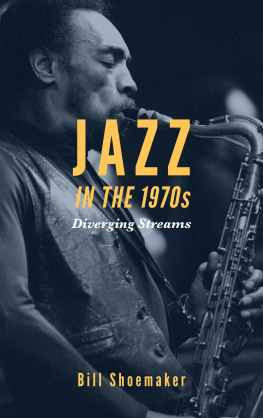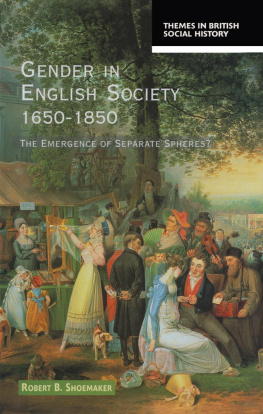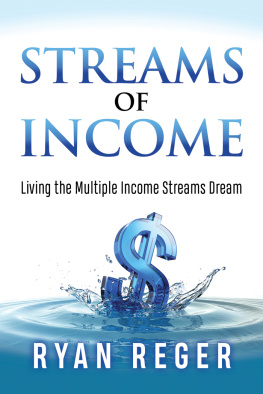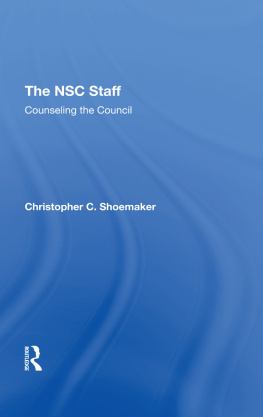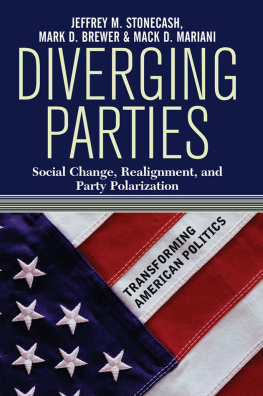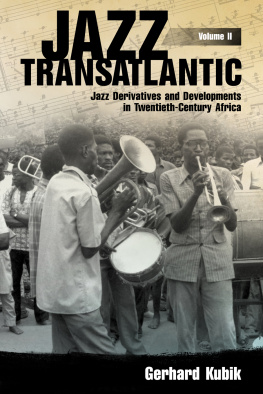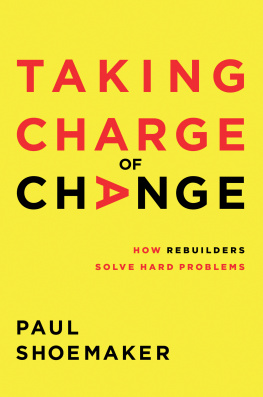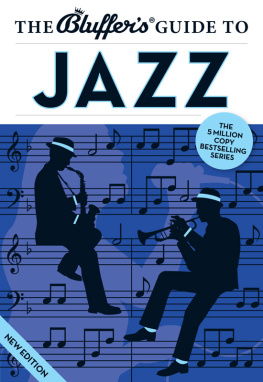Shoemaker - Jazz in the 1970s : diverging streams
Here you can read online Shoemaker - Jazz in the 1970s : diverging streams full text of the book (entire story) in english for free. Download pdf and epub, get meaning, cover and reviews about this ebook. City: Lanham, Maryland, year: 2018, publisher: Rowman & Littlefield, genre: Home and family. Description of the work, (preface) as well as reviews are available. Best literature library LitArk.com created for fans of good reading and offers a wide selection of genres:
Romance novel
Science fiction
Adventure
Detective
Science
History
Home and family
Prose
Art
Politics
Computer
Non-fiction
Religion
Business
Children
Humor
Choose a favorite category and find really read worthwhile books. Enjoy immersion in the world of imagination, feel the emotions of the characters or learn something new for yourself, make an fascinating discovery.
- Book:Jazz in the 1970s : diverging streams
- Author:
- Publisher:Rowman & Littlefield
- Genre:
- Year:2018
- City:Lanham, Maryland
- Rating:4 / 5
- Favourites:Add to favourites
- Your mark:
- 80
- 1
- 2
- 3
- 4
- 5
Jazz in the 1970s : diverging streams: summary, description and annotation
We offer to read an annotation, description, summary or preface (depends on what the author of the book "Jazz in the 1970s : diverging streams" wrote himself). If you haven't found the necessary information about the book — write in the comments, we will try to find it.
Shoemaker: author's other books
Who wrote Jazz in the 1970s : diverging streams? Find out the surname, the name of the author of the book and a list of all author's works by series.
Jazz in the 1970s : diverging streams — read online for free the complete book (whole text) full work
Below is the text of the book, divided by pages. System saving the place of the last page read, allows you to conveniently read the book "Jazz in the 1970s : diverging streams" online for free, without having to search again every time where you left off. Put a bookmark, and you can go to the page where you finished reading at any time.
Font size:
Interval:
Bookmark:
Jazz in the 1970s
Jazz in the 1970s
Diverging Streams
Bill Shoemaker
ROWMAN & LITTLEFIELD
Lanham Boulder New York London
Published by Rowman & Littlefield
A wholly owned subsidiary of The Rowman & Littlefield Publishing Group, Inc.
4501 Forbes Boulevard, Suite 200, Lanham, Maryland 20706
www.rowman.com
Unit A, Whitacre Mews, 26-34 Stannary Street, London SE11 4AB
Copyright 2018 by William Shoemaker
All rights reserved. No part of this book may be reproduced in any form or by any electronic or mechanical means, including information storage and retrieval systems, without written permission from the publisher, except by a reviewer who may quote passages in a review.
British Library Cataloguing in Publication Information Available
Library of Congress Cataloging-in-Publication Data
Names: Names: Shoemaker, Bill, 1953 author.
Title: Jazz in the 1970s : diverging streams / Bill Shoemaker.
Description: Lanham : Rowman & Littlefield, [2018] | Includes bibliographical references and index.
Identifiers: LCCN 2017029675 (print) | LCCN 2017029968 (ebook) | ISBN 9781442242104 (electronic) | ISBN 9781442242098 (hardcover : alk. paper)
Subjects: LCSH: Jazz19711980History and criticism.
Classification: LCC ML3506 (ebook) | LCC ML3506 .S48 2018 (print) | DDC 781.6509/047dc23
LC record available at https://lccn.loc.gov/2017029675
 TM The paper used in this publication meets the minimum requirements of American National Standard for Information Sciences Permanence of Paper for Printed Library Materials, ANSI/NISO Z39.48-1992.
TM The paper used in this publication meets the minimum requirements of American National Standard for Information Sciences Permanence of Paper for Printed Library Materials, ANSI/NISO Z39.48-1992.
Printed in the United States of America
To Lillian
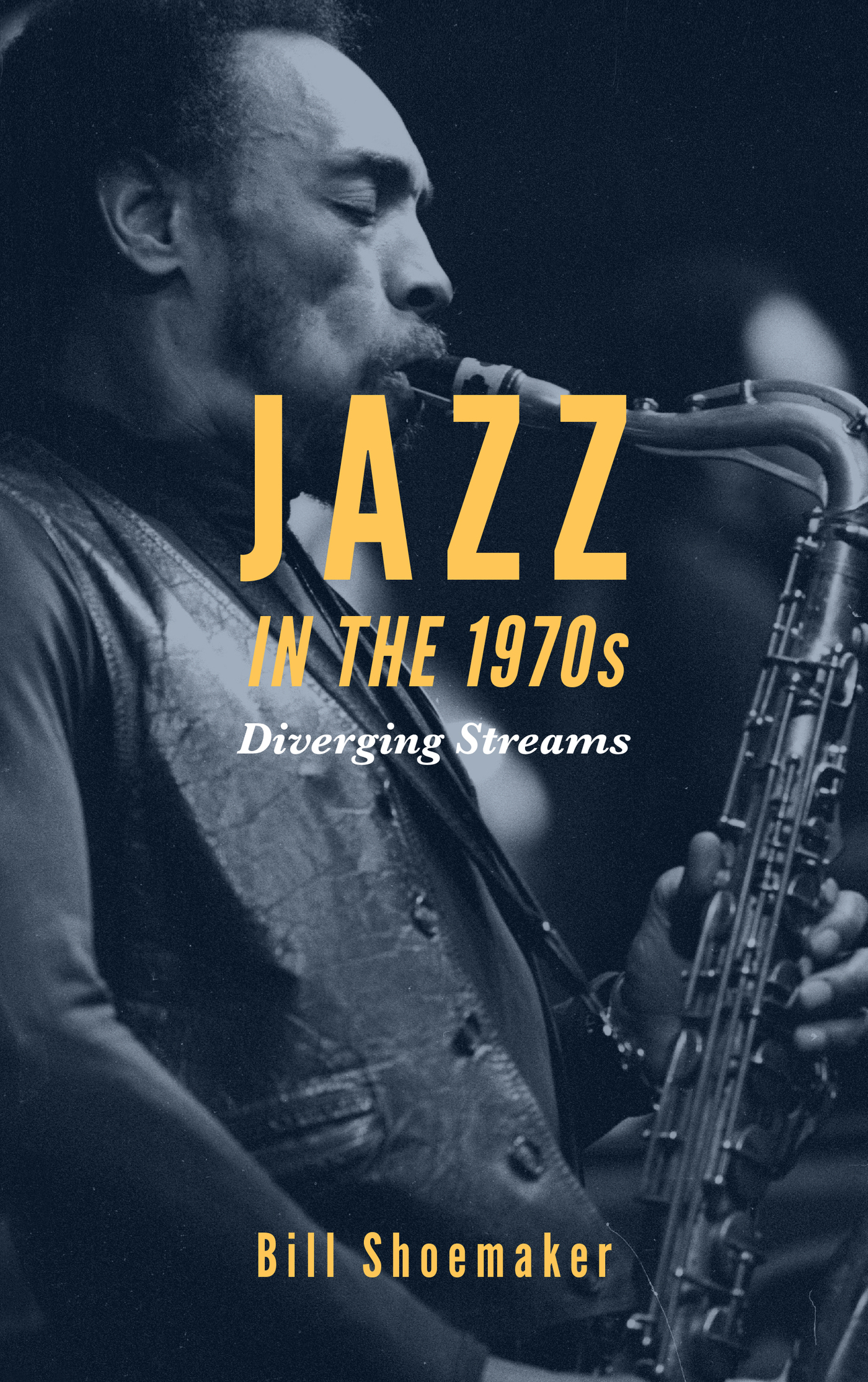
A few comments about the structure, subject selection, and methods of this undertaking are in order. I allocate a chapter to a single event in a given year of the decade to construct an episodic history, prompting a reassessment of jazz in the 1970s. I lead with chapters about a South African exile in London and musicians in a divided Germany to reinforce the idea of jazz as a vital international call for self-determination. Several chapters discuss the impact of government programs, business interests, and grassroots movements on how the music was created and articulated at home and abroad and how these forces fueled the divergence of various streams of jazzsome eventually repudiating jazz itself. This is not a comprehensive history of jazz in the 1970s; rather, this is an argument for the continuing relevancy of artists too often marginalized or omitted in standard accounts.
I have been inspired by Hugh Kenners The Pound Era since first reading it more than forty years ago, his concept of an X-ray moving picture of how our epoch was extricated from the fin de sicle, remaining for me a dynamic, compelling method to render history. I readily concede my effort is a slideshow when compared to Kenners vivid full-era scan. Throughout the writing of this book, I confronted spotty press accounts and hazy memories, becoming increasingly mindful that the 1970s were long ago. Subsequently, I frequently return to artists, journalists, and producers to parse details, limiting what I report to what could be confirmed by a second source. In one of my many conversations to fact-check first-person accounts, I was cautioned that a reliable source is one who is 90 percent right, 90 percent of the time. Subsequently, I increasingly identified with Kenners conclusion, which employs one of Ezra Pounds more resonant lines: Shall two know the same in their knowing? Thought is a labyrinth.
Many people generously aided me as I wound my way back and forth through the 1970s. Repeatedly, their memories, leads, and corroborations helped me to avoid dead ends, and their feedback pointed me in the right direction. My sincere thanks to Clifford Allen, Barry Altschul, Jens Arnold, Dave Ballou, Anthony Barnett, Steve Beresford, Riccardo Bergerone, Jason Bivins, Bob Blumenthal, Joe Boyd, Anthony Braxton, Karen Brookman, Stuart Broomer, Peter Brtzmann, Greg Buium, John Butcher, Hope Carr, Baikida Carroll, Marc Charig, Marc Chnard, Troy Collins, Pierre Crpon, Michael Cuscuna, Martin Davidson, Chris DeVito, Mark Dresser, Marty Ehrlich, Jim Eigo, Malink Robert Elliott, Nick Evans, Steven Feigenbaum, Michael Fitzgerald, Jost Gebers, Francis Gooding, Georg Graewe, Malcolm Griffiths, Nancy Weiss Hanrahan, John Edward Hasse, Ed Hazell, Michael Heller, Jon and Judith Hendricks, Steven Isoardi, John Jack, Oliver Jackson, Sven-ke Johansson, Ashley Kahn, Larry Kart, Barry Kernfeld, Wolfram Knauer, Henry Kuntz, Steve Lake, Art Lange, Jolle Landre, David Lee, Richard Leigh, George Lewis, John Litweiler, Benjamin Looker, K. Curtis Lyle, Terry Martin, Francesco Martinelli, Maxine McGregor, Ed Michel, Hazel Miller, Roscoe Mitchell, Louis and Mpumi Moholo-Moholo, Annette Morreau, Famoudou Don Moye, Chuck Nessa, Evan Parker, Ken Pickering, Alexandre Pierrepont, Grard Rouy, Robert D. Rusch, John Russell, Alexander von Schlippenbach, Victor Schonfield, Doris Schroeder, Archie Shepp, John Surman, Laurence Svirchev, Garry Todd, Abdul Wadud, Mark Weber, Arndt Weidler, David Weinstein, Kevin Whitehead, Michael Wilderman, Monique Rivers Williams, Richard Williams, Val Wilmer, Ben Young, Marc Zendrini, and Eric Ziarko.
The 1960s: Point of Departure
No modern art form is cleaved more regularly into decade-long chunks as jazz, even though its advents and variegations more often than not run over from one decade to the next as naturally as a Sonny Rollins solo vaulting over the bar lines of a standard. Necessarily, fully understanding any given decade in jazz history is dependent on articulations of the prior and subsequent ten-year spans. This is particularly true of the 1970s, a decade whose rich legacy is still largely overwritten with a single numbing wordfusiona curious fate given the hot, divisive rhetoric that accompanied both the 1960s, jazzs most pivotal if not transformative decade, and the 1980s, arguably the decade in jazz history most defined by reactionary, even puritanical, forces.
A reassessment of the 1970s, then, requires a dissection of 60s jazz narratives that also default to a single F wordfreedomwithout detailing how freedom in jazz during the 60s was shaped by the tension between artistic and commercial interests. These narratives begin somewhat inconveniently in 1958 and use a metric that reflexively identified the new, usually in its most shocking forms, as exemplifying freedom most purely, thereby overlooking or underestimating expressions of freedom that have endured into the twenty-first century. Such was the case when freedom was branded in the early 60s by an alignment of musicians, critics, and media companies, much like how tradition was appropriated by a similar confederacy in the 1980s. Freedom was the rallying cry of an emergent jazz avant-garde, one that met key criteria laid out by Harold Rosenberg in his essay on vanguard artist movements, The Avant-Garde. The jazz avant-garde was fused with the consciousness of a changing world and of the need for men to anticipate and perhaps control that change. By mid-decade, it embodied an attempt at prophecy, wagering its survival on the relevance of its intuition of the future, of which its creations are presented as models. The jazz avant-garde had attributes of similar movements, like Dada, that, [m]oved by their appetite for publicity and by the counter-impulse to defend their exclusivity by an exaggerated esotericism,... tend to split apart in clouds of accusations of opportunism, posturing and bad faith. In the process, jazzs freedom imperative was transformed but not for the last time in the decade.
Next pageFont size:
Interval:
Bookmark:
Similar books «Jazz in the 1970s : diverging streams»
Look at similar books to Jazz in the 1970s : diverging streams. We have selected literature similar in name and meaning in the hope of providing readers with more options to find new, interesting, not yet read works.
Discussion, reviews of the book Jazz in the 1970s : diverging streams and just readers' own opinions. Leave your comments, write what you think about the work, its meaning or the main characters. Specify what exactly you liked and what you didn't like, and why you think so.

